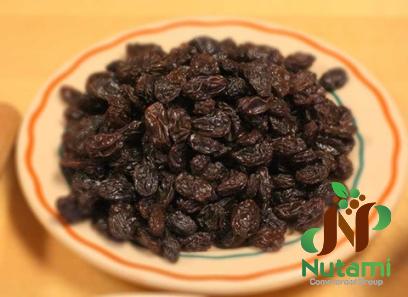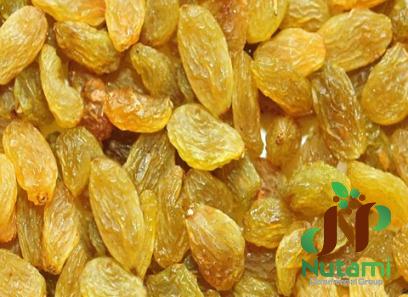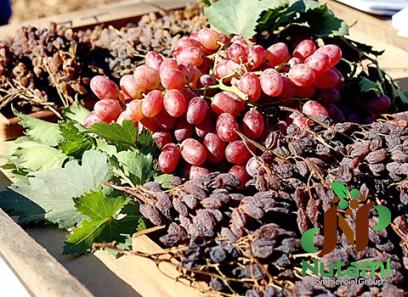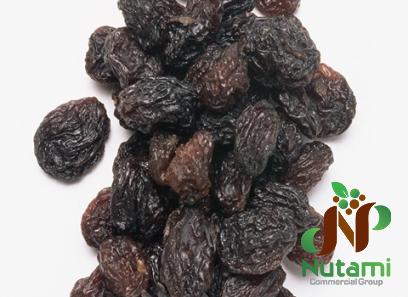In recent years, the demand for organic products has seen a considerable upswing, with consumers becoming increasingly conscious about the quality and source of their food. One such discussion revolves around organic raisins and their conventional counterparts. This article aims to shed light on the key differences between organic raisins and regular ones, exploring their production methods, nutritional value, and environmental impact. By understanding these factors, consumers can make informed decisions about which raisins are best suited to their needs. Production Methods: The fundamental difference between organic and regular raisins lies in their production methods. Organic raisins are cultivated using organic farming practices, which prioritize the use of natural fertilizers and pest control methods. Conversely, regular raisins are produced through conventional farming methods that may involve the use of synthetic pesticides and fertilizers. Environmental Impact: The environmental impact of conventional farming practices is a significant concern.

.
 The use of synthetic chemicals can contaminate soil and water, harming ecosystems and potentially affecting the long-term sustainability of the land. In contrast, organic farming practices focus on minimizing negative environmental effects by conserving water, increasing biodiversity, and replenishing soil nutrients. Nutritional Value: One of the primary reasons consumers opt for organic raisins is their perceived superior nutritional value. Organic raisins are believed to have higher levels of vitamins, minerals, and antioxidants due to the absence of synthetic chemicals in their production. While there are slight variations, the overall nutritional content of organic and regular raisins is similar. Both types provide a good source of dietary fiber, potassium, iron, and antioxidants.
The use of synthetic chemicals can contaminate soil and water, harming ecosystems and potentially affecting the long-term sustainability of the land. In contrast, organic farming practices focus on minimizing negative environmental effects by conserving water, increasing biodiversity, and replenishing soil nutrients. Nutritional Value: One of the primary reasons consumers opt for organic raisins is their perceived superior nutritional value. Organic raisins are believed to have higher levels of vitamins, minerals, and antioxidants due to the absence of synthetic chemicals in their production. While there are slight variations, the overall nutritional content of organic and regular raisins is similar. Both types provide a good source of dietary fiber, potassium, iron, and antioxidants.
..
 Pesticide Residue: One compelling argument in favor of organic raisins is the concern about pesticide residue. Conventional raisins may contain traces of synthetic chemicals that have been used during their cultivation, which can be potentially harmful to human health when consumed over the long term. Organic raisins, on the other hand, are grown without the use of synthetic pesticides, offering peace of mind to those who prioritize pesticide-free foods. Cost Considerations: While organic raisins offer several advantages, it is vital to consider the price differential. Organic products, including raisins, often have a higher price tag due to the more labor-intensive and environmentally friendly farming practices involved. This price discrepancy can be a significant factor for consumers on a tight budget, and it is essential to balance the benefits of organic raisins with individual financial considerations.
Pesticide Residue: One compelling argument in favor of organic raisins is the concern about pesticide residue. Conventional raisins may contain traces of synthetic chemicals that have been used during their cultivation, which can be potentially harmful to human health when consumed over the long term. Organic raisins, on the other hand, are grown without the use of synthetic pesticides, offering peace of mind to those who prioritize pesticide-free foods. Cost Considerations: While organic raisins offer several advantages, it is vital to consider the price differential. Organic products, including raisins, often have a higher price tag due to the more labor-intensive and environmentally friendly farming practices involved. This price discrepancy can be a significant factor for consumers on a tight budget, and it is essential to balance the benefits of organic raisins with individual financial considerations.
…
 Consumer Choice: Ultimately, the choice between organic and regular raisins depends on individual preferences, dietary needs, and environmental concerns. For those who prioritize organic, nutrient-dense foods and value sustainable farming practices, the decision is clear. However, for individuals who prioritize cost or have limited access to organic options, regular raisins may still offer a viable and nutritious alternative. Conclusion: The organic raisin vs. regular debate encompasses multiple factors, including production methods, environmental impact, nutritional value, pesticide residue, and cost considerations. While organic raisins are favored by health-conscious consumers and those concerned about sustainability, regular raisins still offer nutritional benefits at a more affordable price point. By understanding these differences, consumers can make an informed decision that aligns with their personal values and needs.
Consumer Choice: Ultimately, the choice between organic and regular raisins depends on individual preferences, dietary needs, and environmental concerns. For those who prioritize organic, nutrient-dense foods and value sustainable farming practices, the decision is clear. However, for individuals who prioritize cost or have limited access to organic options, regular raisins may still offer a viable and nutritious alternative. Conclusion: The organic raisin vs. regular debate encompasses multiple factors, including production methods, environmental impact, nutritional value, pesticide residue, and cost considerations. While organic raisins are favored by health-conscious consumers and those concerned about sustainability, regular raisins still offer nutritional benefits at a more affordable price point. By understanding these differences, consumers can make an informed decision that aligns with their personal values and needs.











Your comment submitted.